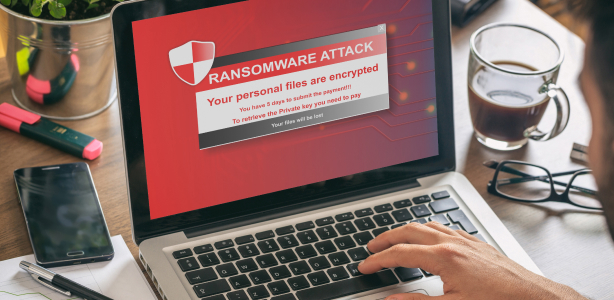Are you sailing in the vast ocean of cybersecurity, wondering if your McAfee antivirus software is a trustworthy anchor or merely a mirage? In a world teeming with scams and fraudulent activities, it’s crucial to distinguish the genuine from the counterfeit. Fear not, for we are here to shed light on this enigma and equip you with the knowledge to authenticate your McAfee. Brace yourself as we unveil the secrets to safeguarding your digital fortress and thwarting the schemes of cyber villains. So, how can you be certain that your McAfee is the real deal? Stay tuned as we unravel the truth behind this digital conundrum.
McAfee Scams: Overview and Common Types
McAfee Scams: Overview and Common Types can be a valuable resource for understanding the deceptive tactics used by scammers and the various types of scams associated with the well-known McAfee brand. When it comes to protecting yourself from McAfee scams, there are several key factors to consider. One important aspect is being able to identify signs of fake McAfee emails. Scammers often use common phishing techniques to trick unsuspecting victims into clicking on malicious links or providing personal information. To stay safe, it is crucial to be cautious of unsolicited emails and avoid clicking on suspicious links or downloading attachments. Additionally, it is essential to know how to identify genuine McAfee alerts. Genuine alerts will not come from public domain names or have misspelled domain names. They will be well-written and won’t create a sense of urgency. By staying vigilant and following these tips, you can protect yourself from falling victim to McAfee scams.
Identifying Phishing Scams
To effectively protect yourself from phishing scams, it is crucial to be able to identify the common signs and tactics used by scammers. Phishing emails are one of the most common types of scams, where scammers send fake email messages posing as legitimate companies. These emails often try to trick people into clicking suspicious links or giving away personal information. To stay safe, avoid clicking on links or downloading attachments from suspicious emails. Always verify the authenticity of the email by checking the sender’s address. Look for grammatical and spelling errors in the email, as these can indicate a phishing attempt. Additionally, avoid providing personal information, such as credit card or debit card details, in response to unsolicited emails.
Beware of McAfee Pop-Up Scams
When it comes to protecting yourself from scams, it’s important to be aware of the tactics used by scammers, and one common scam to be cautious of is the McAfee pop-up scam. Here are some key points to keep in mind:
- McAfee Pop-Up Dangers:
- Fake pop-ups claiming to be from McAfee are a common scam.
- These pop-ups often contain viruses or malware that can harm your computer or steal your personal information.
- Be cautious when encountering pop-ups, even if they claim to be from reputable companies like McAfee.
- Common Phishing Techniques:
- Scammers may use pop-ups to trick you into providing personal information or clicking on malicious links.
- Phishing emails are another common technique used by scammers to deceive people.
- These emails often appear to be from legitimate companies but aim to steal your personal information.
- Protecting Against Subscription Scams and Tech Support Fraud:
- Be cautious of unsolicited calls or emails offering renewal deals or asking for remote access to your computer.
- Renew your McAfee subscription directly through the official website or authorized retailers.
- Remember that McAfee’s official tech support will not contact you unless requested, so do not grant remote access to unsolicited callers.
Recognizing McAfee Scam Emails
To protect yourself from falling victim to McAfee scam emails, it is crucial to be able to recognize the red flags and signs of fraudulent messages. Here are some tips for detecting fake McAfee emails and avoiding scams:
| Tips for detecting fake McAfee emails | Warning signs of a phishing email | How to spot a fake McAfee pop up |
|---|---|---|
| Check for grammatical and spelling errors in the email content. | Look for generic greetings instead of personalized ones. | Pay attention to the URL of the pop-up. Genuine McAfee pop-ups will have a URL that starts with “https://www.mcafee.com”. |
| Be skeptical of emails with offers or deals that seem too good to be true. | Urgency and pressure to take immediate action are common in phishing emails. | Genuine McAfee pop-ups will not ask for personal information or payment details. |
| Verify the authenticity of the email by checking the sender’s address. | Requests for personal or financial information should raise suspicion. | Look for inconsistencies in the design and layout of the pop-up. Genuine McAfee pop-ups will have a professional and polished appearance. |
| Avoid clicking on suspicious links or downloading attachments from suspicious emails. | Poorly written emails with spelling and grammatical errors are often signs of phishing attempts. | Close the pop-up and run a scan with your trusted antivirus software to ensure your system is secure. |
| Always verify offers by visiting McAfee’s official website. | Watch out for email addresses that don’t match the official McAfee domain. | Keep your browser and antivirus software updated to block malicious pop-ups. |
Avoiding McAfee Renewal and Antivirus Plus Scams
To protect yourself from falling victim to McAfee scams, it is essential to understand how to avoid renewal and Antivirus Plus scams. Follow these tips to avoid subscription scams and protect yourself from fake renewal offers:
- Recognize fake renewal offers:
- Be cautious of unsolicited calls or emails offering renewal deals.
- Renew your subscription directly through the official McAfee website or authorized retailers.
- Do not provide credit card information over the phone to unknown callers.
- Verify software authenticity:
- Purchase McAfee products only from the official website or authorized retailers.
- Before downloading any software, verify its authenticity.
- Check for official McAfee logos and trademarks.
- Protect against tech support scams:
- McAfee’s official tech support will not contact you unless requested.
- Do not grant remote access to unsolicited callers.
- If in doubt, contact McAfee’s official support for verification.
Protecting Against Tech Support and Fake Virus Scan Scams
Protect yourself from tech support scams and fake virus scan scams by staying vigilant and following these preventive measures. When it comes to tech support scams, it is important to be able to identify them. Scammers may call and request remote access to install a virus or steal your information. Remember that McAfee’s official tech support will not contact you unless requested, so do not grant remote access to unsolicited callers. If in doubt, contact McAfee’s official support for verification.
In the case of fake virus scan scams, scammers create fake virus scans and claim that your computer is infected. They then try to sell you fake antivirus programs to remove the supposed virus. To protect yourself, do not trust unsolicited virus scan alerts, especially from unknown sources. Instead, use McAfee’s official antivirus tools for scanning your computer. Additionally, avoid downloading software from pop-up alerts or unfamiliar websites.
To ensure that you are receiving genuine McAfee alerts, look for signs of authenticity. Genuine McAfee alerts will not be sent from public domain names or have misspelled domain names. They will be well-written and won’t have a sense of urgency. Verify the presence of suspicious links and attachments in the email. You can also double-check the notification in the McAfee security software to confirm the authenticity of the alert.
If you come across fake McAfee emails, it is important to report them. Avoid clicking on links or contacting the number provided in suspicious emails. Instead, report the fake McAfee emails to [emailprotected]. Provide details about the suspicious email, such as the sender’s email address and the content of the email. Including any relevant screenshots or attachments in your report can also be helpful. By cooperating with the McAfee team, you can help them investigate and prevent further scams.




